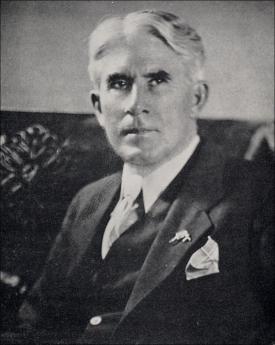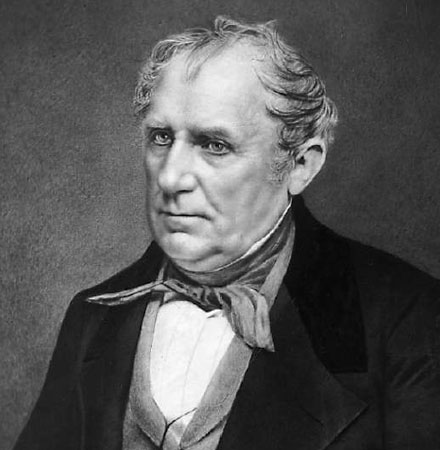Related Topics
Quakers: All Alike, All Different
Quaker doctrines emerge from the stories they tell about each other.
Literary Philadelphia
Literary
Touring Philadelphia's Western Regions
Philadelpia County had two hundred farms in 1950, but is now thickly settled in all directions. Western regions along the Schuylkill are still spread out somewhat; with many historic estates.
Favorite Reflections
 In no particular order, here are the author's own favorites.
In no particular order, here are the author's own favorites.
Quaker Theology
New topic 2016-12-04 04:18:19 description
Interesting Quaker Characters
All alike, but all different.
Zane Grey, Dentist

|
| Zane Grey |
The American myth of the cowboy has much more Philadelphia flavor than one would suppose, considering the far-western location of the cows, the New York origins of Teddy Roosevelt, and the implication of southern aristocracy running through the dispossessed gentlemen riding the purple sage. The myth of the noble cowboy is behind much of what elected Ronald Reagan, the Californian.
Nevertheless, the Homer who started this epic Iliad was Owen Wister of Seventh and Spruce, Philadelphia.His book The Virginian might be summarized in a single quotation, "When you say that to me, smile." Behind that, of course, was Wister the lion of the Philadelphia Club rebuking his peers. The real theme was "I searched the drawing rooms of Philadelphia and Boston for the gentleman. And I found him on the frontier."

|
| James Fenimore Cooper |
Part of this complex theme is the underlying outdoors fraternity linking cowboys and Indians, tracing back to James Fenimore Cooper of Camden, NJ ennobling the noble savage in the Last of the Mohicans. Fair treatment for the natives has long been a strong Quaker theme, tracing back to William Penn's deep wisdom about colonization, and also personified in Corn planter the thoughtful Chief of the Iroquois, or Joseph Brant the scholarly Indian leader who translated the Bible, charmed the English monarchy, and then returned home to massacre the town of Lackawaxen. There's a theme here of shooting the circling Indians off their ponies, take no prisoners, mixed with the tragic white woman who falls in love with the equally tragic Indian brave, all doomed from the start. There's the sheriff with a shady past, going forth to shoot it out with outlaws while his Quaker wife watches out the window, because he is true to the Code of the West. Grace Kelly was surely no Quaker, but the Philadelphia hint is unmistakable.
It may take a century or more, but some American Homer is surely going to write the definitive epic based on this story. Meanwhile, Zane Grey tried his best. His version has a lot of Philadelphia in it, and not only because he went to the University of Pennsylvania on a baseball scholarship. He graduated from Penn as a dentist, practiced in New York for six years, and hated every minute of it. Writing cowboy stories in his spare time, he gladly quit dentistry after his first publishing success, and moved over to Lackawaxen, PA to write in the woods. Lackawaxen is a great fishing spot, and was once a flourishing resort community at the confluence of the railroad and canal systems, now long since decayed and gone. He lived there for fifteen years, and asked to be buried there. His home is now a museum.
Pearl Grey became Zane Grey by way of P. Zane Grey, DDS. He had been born in Zanesville, Ohio, the son of a Quaker mother who belonged to the founding Zane family, and a preacher-farmer father who had insisted on the dentistry idea. All his life, Zane Grey was a vigorous sportsman, most unlikely to warm to an effeminate name like Pearl. Or gentle Quaker ways, either; but like his cowboy heroes he was obedient to his code. Most of his life he managed to go fishing more than two hundred times a year, and produced two thousand words of writing almost every week. He wrote a hundred thousand words a year, and kept it up for thirty years. He published sixty books in his lifetime, and thirty more of his books have appeared since his death. His material was the basis for forty movies, and many short stories. Six of his books are about fishing, but mostly he wrote sophisticated variations on the theme of the wild West, the cowboy true to his code, and the noble savage. He was the first American author to become a millionaire from his writings. It seems sort of a pity that he was overtaken by the pressures of commercial success, and consumed by his extraordinary drive and diligence to the point where very little time was left for the Great American Epic of the West. He lived in California for many years, but it seems unlikely there were enough hours in his day to shake loose from Quaker origins.
The same is true of Ronald Reagan and his Iowa origins, but somehow that does not capsulize what the American cowboy represents. Somehow there is something in common about the former Confederate cavalrymen who were the early cowboys, the Quakers befriending the Indians, and the Iowa boy who was to negotiate the end of the Cold War with the Evil Empire. It is somehow a matter of remaining true to your roots while dealing fairly with strangers. It lies in Reagan's motto as much as the Virginian's barroom warning. Trust, but verify.
Originally published: Monday, June 19, 2006; most-recently modified: Monday, June 25, 2018